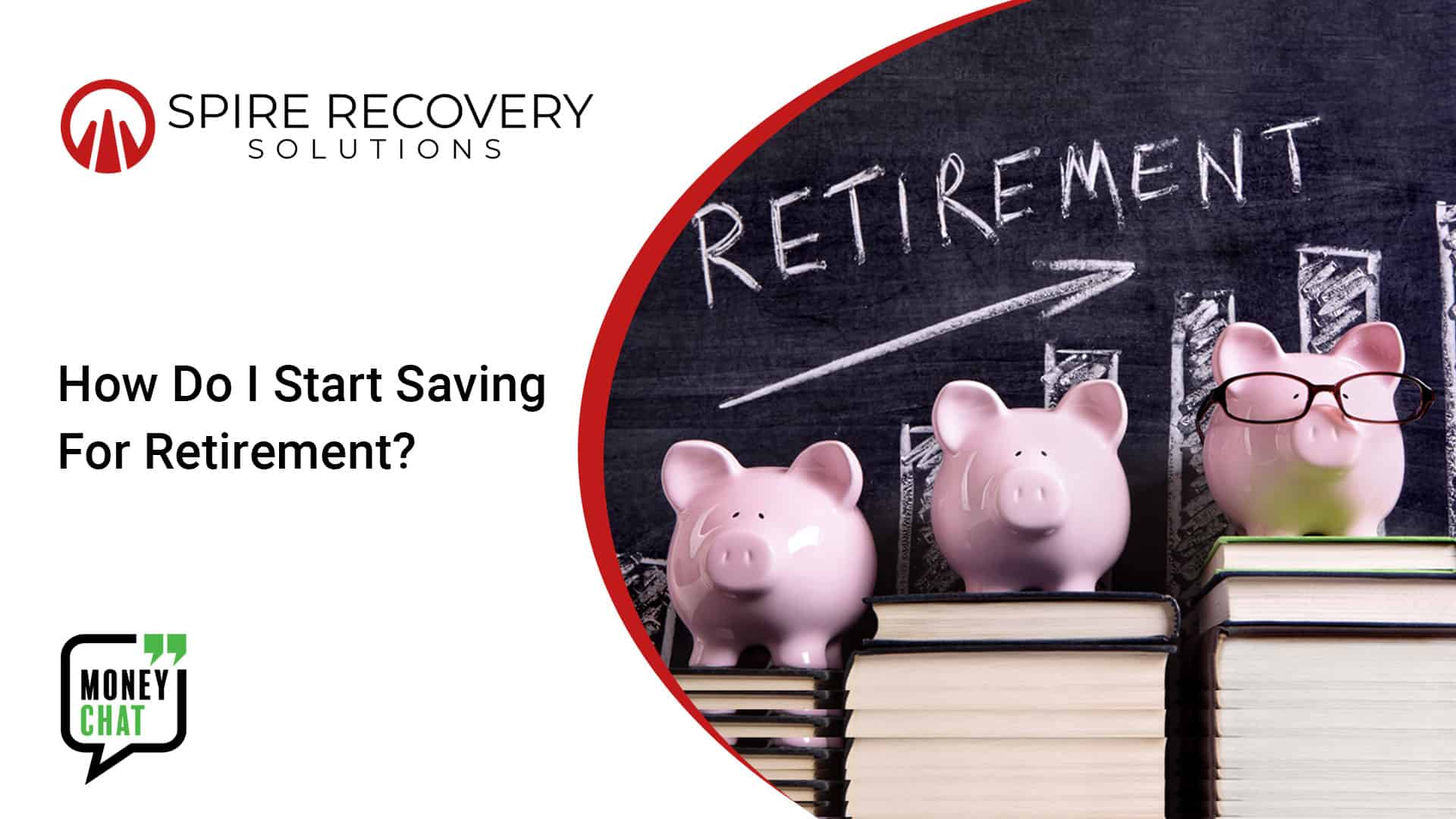
How Do I Start Saving For Retirement?
Are you saving for retirement? It’s not unlikely you’ve been asked this question on several occasions by a well-meaning family member or friend—but how do you get started with saving for retirement? What types of retirement plans are there? How do you choose the right one? This article will share some basics such as what retirement savings are, the different plans you can have, and how the market can affect your retirement investments.
The goal of this Money Chat is to provide a basic overview of the most common types of retirement savings, ways to contribute, and how retirement accounts can be affected by the market.
What Are Retirement Savings?
Retirement planning refers to the financial strategies of saving, investing, and the distribution of money meant to sustain oneself during retirement. To put it even simpler, it’s money you set aside to use later for when you retire. There are also different retirement plans available that you can use to distribute your money. Some employers offer a 401k plan as part of their company’s benefits package (more on those later). Typically, people will put a percentage of their paycheck towards their retirement savings. The goal is to, over the course of a career, build up enough savings to retire.
Different Types of Retirement Plans
Retirement plans can differ based on income, employment, and investments. Each one has pros and cons that need to be considered. The retirement plans listed below are some of the most common.
Individual Retirement Arrangements (IRAs):
Individual Retirement Arrangements (IRAs) allow you to make tax-deferred investments for your retirement—up to $6,000 annually. Different types of IRAs include Roth IRAs, SEP IRAs, and SIMPLE IRAs. Investments held in an IRA can include financial products like stocks, bonds, exchange-traded funds (ETFs), and mutual funds. Typically, with IRAs, if you withdraw money before age 59 ½, you’ll be subject to an early withdrawal penalty of 10%.
401k Plan
A 401k plan is a feature of a qualified profit-sharing plan that allows employees to contribute part of their wages to individual accounts and mutual funds. If you’ve ever looked at a benefits package when applying for a job, it’s likely that a 401k plan was an option. 401ks have become one of the most commonly used retirement plans in the US. Employers also have the ability to contribute to the individual’s accounts by matching some or all of the contributions made by the employee. The investment earnings are typically not taxed until the employee withdrawals that money when they retire.
Similar plans are the SIMPLE 401k and the 403b for smaller businesses and those with tax shelters such as public schools.
Social Security
Social Security is a retirement plan, but if possible, should not be your only retirement plan. There is no account waiting for you at the start of your retirement. Social Security replaces a percentage of your pre-retirement income based on your earnings. The pre-retirement wages that it replaces are based on your highest 35 years of earnings and vary depending on how much you earn and when you choose to start drawing benefits.
Contributing to a Retirement Account
Once you’ve chosen and set up your plan, whether it’s an IRA or some variation of a 401k, it’s important that you consistently contribute to your retirement. If your retirement plan is attached to your employer, like in a 401k, it’s wise to contribute the maximum amount your employer will match when you are financially able. These are examples of types of contributions made to retirement plans:
- Salary reduction/elective deferral contributions
- Designated Roth contributions
- After-tax contributions
- Catch-up contributions
However, there are limits to what you and your employer can contribute annually. These can vary depending on the plan, and you will incur penalties if taken out before a certain age. Also, there are contribution limits. You and your employer can only annually contribute (jointly) $19,500 to a 401k and (individually) $6000 for an IRA or Roth.
How Does the Market Affect Retirement Savings?
Depending on the plan you have, the market is likely to affect your retirement investments. America’s deepening reliance on 401k plans, which are connected to the market via investments and mutual funds, has created a double-edged sword. On the one hand, investors have more control over investments. On the other, investors can no longer count on a defined-benefit pension at the end of their career. A volatile market can dampen years of careful retirement planning. As a result, it’s important that you protect your retirement money from market volatility by diversifying your portfolio. In other words, don’t put all your eggs in one basket.
This means having multiple retirement accounts. Take advantage of the 401k provided by your employer but also invest in an IRA, Roth, or multiple other plans depending on your financial goals. Asset Allocation is a good diversification tool to employ. It refers to the amount of each asset class you own, whether it be stocks, bonds, or cash equivalents, such as money market funds. It’s good to work with a financial advisor to find the right asset allocation for your age and income.
Thankfully, Social Security is not directly connected to the market because it does not invest any of its funds into the stock market. One way it could indirectly affect it would be a booming stock market increasing your personal retirement portfolio earnings. IRAs also have the potential to be directly impacted by the market depending on the investments in them. If you chose to put investments connected to the market into your portfolio, then those would ultimately have an effect on your IRA.
Interest Rates and Retirement Savings
What do interest rates have to do with retirement? Similar to how your retirement savings are affected by the market, they are also affected by interest rates depending on the type of plan you have. This is another reason why diversifying your portfolio is so important. Plans like the 401k are susceptible to the market because the market is susceptible to rising interest rates.
The Federal Reserve Bank sets interest rates based on its view of what is best for the economy and holds regular meetings to discuss any potential changes in interest rate policy. One of the more obvious ways interest affects your retirement is the amount of compound interest you make on the investments you put into them like your 401k or IRAs.
What Does This Mean For Me?
Retirement savings are a very personal financial investment. It’s important to research your options, use online retirement calculators (just remember that they aren’t exact), and talk to a professional financial advisor if you have any questions or concerns. What’s most important is that you save as much as you are able to, beginning as early as possible. Just think of it as saving now to pay yourself later, and it’s never too late to start.
Additional Resources
If you want to learn more about financial literacy or your rights as a consumer, please visit the Receivables Info Resources Page.
Have an idea for a Money Chat topic?
We want to hear from you! If you have a suggestion for a future Money Chat topic, please email us at [email protected].
The information contained in this article is meant to serve as general guidance for consumers and not meant to serve as comprehensive financial advice. For questions about your individual circumstance, finances, or accounts, please contact your creditor(s) and/or financial advisor directly.
Thank you to our Sponsor
This article was sponsored by Spire Recovery Solutions, LLC. Founded by U.S. Veterans Joseph Torriere and Jacob Torriere, Spire is a professional, nationally licensed full-service debt collection agency that assists creditors in the recovery of outstanding balances while providing consumers with exceptional customer service. Spire Recovery Solutions uses customized processes and state-of-the-art technology to provide transparency and compliance that clients and consumers trust and rely on while working together toward account resolution. Spire Recovery Solutions is located in Lockport, NY.




